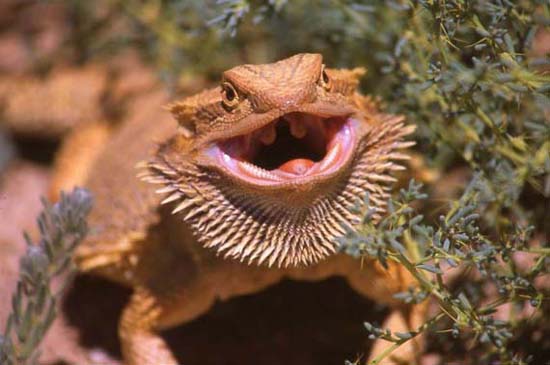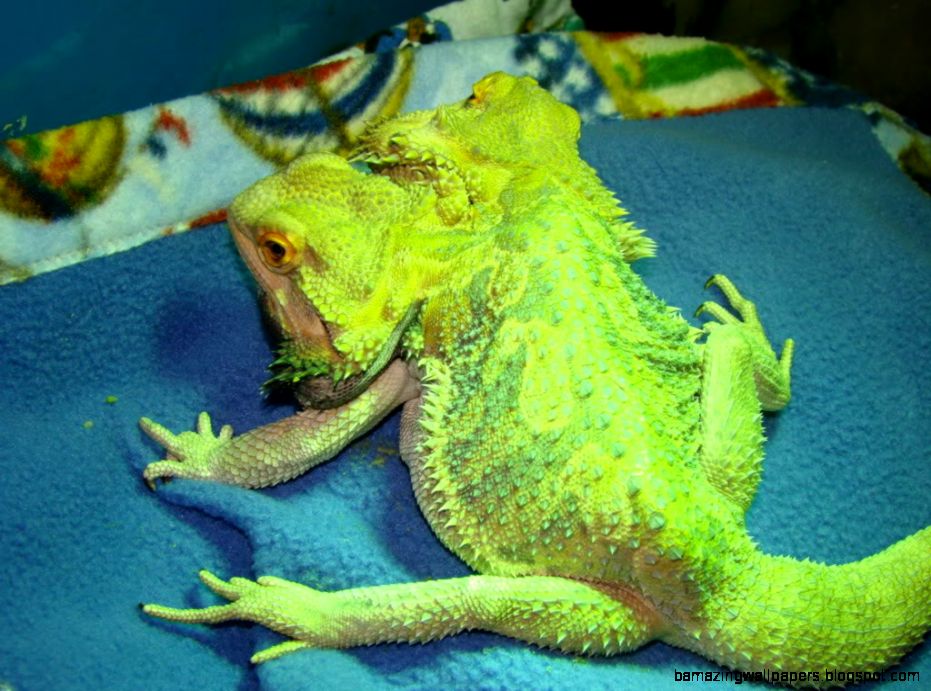Why Is Your Bearded Dragon Puffing Its Beard in the Morning?
Understanding Your Bearded Dragon’s Puffing Behavior in the Morning

As a beginner in taking care of bearded dragons, you may find your pet puffing up its beard in the mornings. This behavior may look alarming, but it is entirely normal in most cases. In this article, we will discuss why bearded dragons puff their beard in the morning, how to tell if it’s normal or not, and what you can do to ensure your pet’s well-being.
Why Do Bearded Dragons Puff Their Beard?
Bearded dragons, like most reptiles, regulate their body temperature through basking under UV lamps or the sun. During the night, when they sleep, their body temperature naturally drops, and they become less active. When they wake up in the morning, they need to warm themselves up to their optimal temperature. Puffing their beard is one way for them to do this.

Bearded dragons have a row of spiny scales under their chin, which form their “beard.” When they puff up their beard, these spiny scales stand out and increase the surface area of their body. It helps them absorb more heat from their basking spot or the sun, warming up their body faster.
Is Puffing Their Beard Normal or a Sign of Distress?
In most cases, puffing their beard is entirely normal behavior for bearded dragons in the morning. However, it’s crucial to observe their overall body language to tell if they’re doing it out of routine or distress.

If your bearded dragon is puffing its beard while exhibiting other signs of distress, such as black beard, gaping, or hissing, it may be a sign of an imminent threat or illness. An agitated or stressed bearded dragon may also puff up its beard throughout the day or even as a defensive posture during handling.
What Can You Do to Ensure Your Bearded Dragon’s Well-being?
To ensure your bearded dragon’s well-being, you can:
- Observe their overall behavior and body language to tell if they’re healthy and content
- Provide them with a basking spot and UV lamp that can provide them with the right temperature and UV light they need
- Offer a balanced diet of insects, vegetables, and fruits suitable for bearded dragons
- Ensure their habitat is spacious, clean, and with proper humidity and temperature gradient as their natural environment
- Handle them gently and with care to prevent stress or injuries

Conclusion
Bearded dragons are fascinating reptiles to take care of, and their puffing behavior in the morning is just one of their quirks. As a beginner in caring for them, observing their behavior and providing them with the right environment and diet are vital for their health and happiness. If you’re ever in doubt about your pet’s well-being, don’t hesitate to consult a reptile veterinarian or a knowledgeable reptile keeper. Your pet’s well-being is always a priority.
